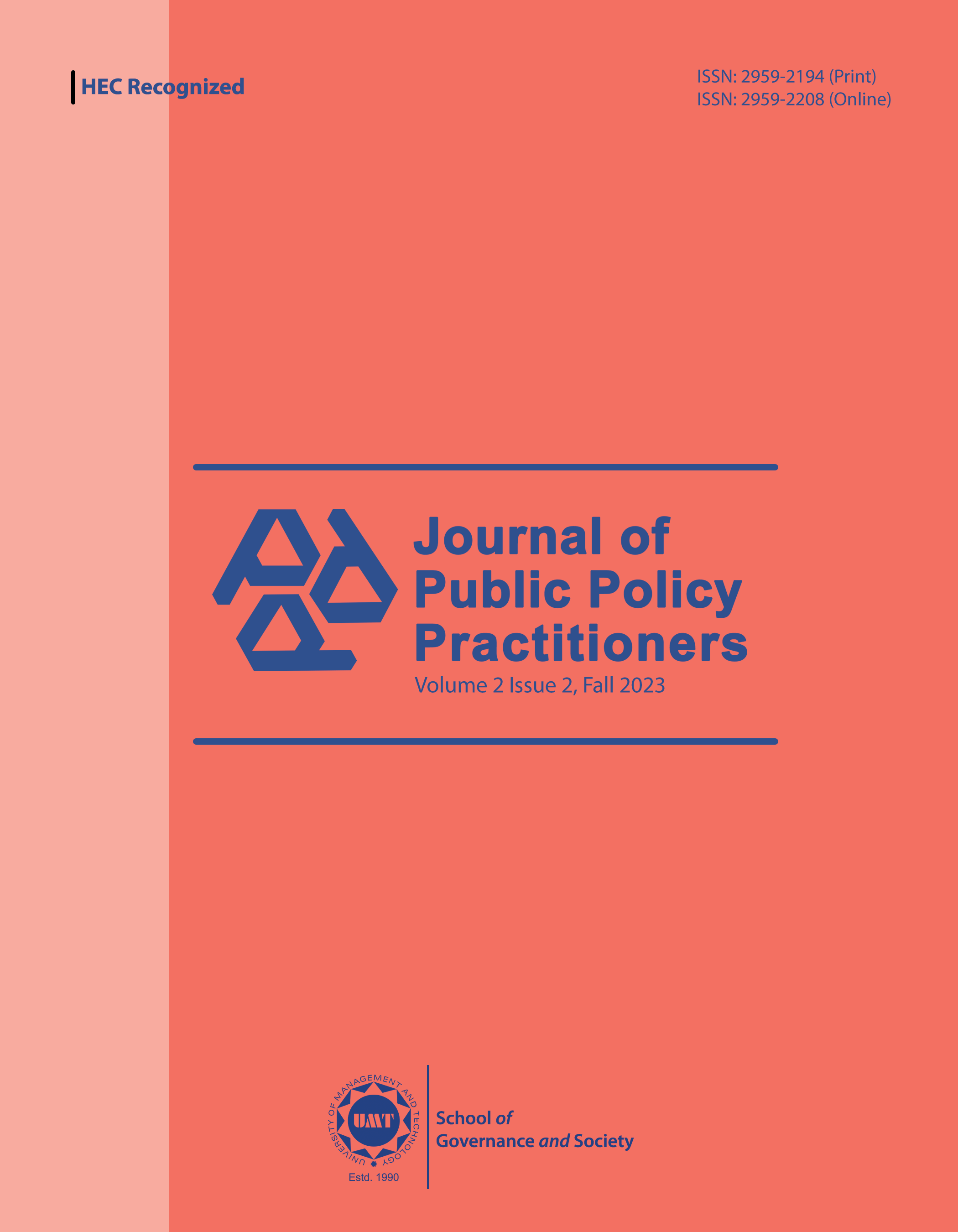A Critical Analysis of Effectiveness of Anti-Corruption Laws in Pakistan: Policy Recommendations
Abstract
 Abstract Views: 0
Abstract Views: 0
This policy paper attempts to gauge the effectiveness of anti-corruption laws in Pakistan designed to address the menace of corruption. For this purpose, the challan and conviction data of NAB, FIA, and ACE (Punjab) over the past few years has been analyzed. It has been observed that the change in NAB law in 2021 and 2022 had a significantly negative impact on both the number of challans / references filed by NAB and conviction ratios. The analysis of the amended NAB law shows its inherent deficiencies in addressing the offenses related to assets beyond means and misuse of authority. Furthermore, the predominant law of both FIA and ACE – Prevention of Corruption Act, 1947 – is unable to deal with the complexities of the 21st century, thus significantly impacting the conviction ratios of these agencies. It is also discussed that the countries with very low CPI, such as Singapore, have a broad perspective regarding the definition of corruption which is lacking in our national anti-corruption legal framework. The policy paper also discusses the preventive approach of Hong Kong to combat corruption, both, at legislative and strategic levels. Based on analysis and discussion, this research recommends necessary rectifications in the anti-corruption legal framework of the country to make it effective in curbing the prevalence of corruption in Pakistan.
Downloads
References
Andvig, J. C., & Moene, K. O. (1990). How corruption may corrupt. Journal of Economic Behavior & Organization, 13(1), 63–73. https://doi.org/10.1016/0167-2681(90)90053-G
Clausen, B., Kraay, A., & Nyiri, Z. (2011). Corruption and confidence in public institutions: Evidence from a global survey. The World Bank Economic Review, 25(2), 212–249, https://doi.org/10.1093/wber/lhr018
E-Legislation (2023, August 30). Independent commission against corruption ordinance. https://www.elegislation.gov.hk/hk/cap204!en? xpid=ID_1438402829119_003
Gul, N., Khan, M. S., Farid, N., Shah, A. A., & Adeel, M. (2022). Analysis of effectiveness of anti-corruption laws of Pakistan. Journal of Positive School Psychology, 6(8), 9954–9967.
Herzfled, T., & Weiss, C. (2003). Corruption and legal (in) effectiveness: An empirical investigation. European Journal of Political Economy, 19(3), 621–632. https://doi.org/10.1016/S0176-2680(03)00018-1
Independent Commission Against Corruption. (2022, July 14). Corruption prevention department: Statutory duty. https://www.icac.org.hk/en/ cpd/duty/index.html
Jain, A. K. (2001) Corruption: A review. Journal of Economic Surveys, 15, 71–121. http://dx.doi.org/10.1111/1467-6419.00133.
Khan, A. (2018, September 18). Punjab ACE conviction rate remains less than two percent. The Nation. https://www.nation.com.pk/18-Sep-2018/punjab-ace-conviction-rate-remains-less-than-two-percent
Levin, M., & Satarov, G. (2000). Corruption and institutions in Russia. European Journal of Political Economy, 16(1), 113–132. https://doi.org/10.1016/S0176-2680(99)00050-6
Man-Wai, T. K. (2016). Effective measures to combat corruption in Hong Kong. United Nations Asia and Far East Institute. https://www.unafei.or.jp/publications/pdf/RS_No101/No101_23_VE_Kwok_1.pdf
Mauro, P. (1995). Corruption and growth. The Quarterly Journal of Economics, 110(3), 681–712. https://doi.org/10.2307/2946696
Myint, U. (2000). Corruption: Causes, consequences and cures. Asia Pacific De¬velopment Journal, 7(2), 33–58.
Pakistan Lawyer. (2021). National accountability (Second Amendment) ordinance. https://pakistanlawyer.com/2022/03/10/national-accountability-second-amendment-ordinance-2021/
Sadiq, E. (2020). Anti-corruption investigation agencies in Pakistan: An appraisal. ISSRA Papers, 12, 47–73. https://issrapapers.ndu.edu.pk /site/article/view/51
Shleifer, A., & Vishny, R. W. (1993). Corruption. The Quarterly Journal of Economics, 108(3), 599–617. https://doi.org/10.2307/2118402
Singapore Statutes Online. (2023). Prevention of corruption act, 1960. https://sso.agc.gov.sg/Act/PCA1960#pr6-
Svensson, J. (2005). Eight questions about corruption. Journal of Economic Perspective, 19(3), 19–42. https://doi.org/10.1257/089533005774357860
The Global Economy. (2023). Pakistan: Corruption perceptions - Transparency international. https://www.theglobaleconomy.com/ Pakistan/transparency_corruption/
United Nations Office on Drugs and Crime. (2023). United Nations convention against corruption. https://www.unodc.org/documents/ brussels/UN_Convention_Against_Corruption.pdf
Copyright (c) 2023 Rehan Akram

This work is licensed under a Creative Commons Attribution 4.0 International License.







